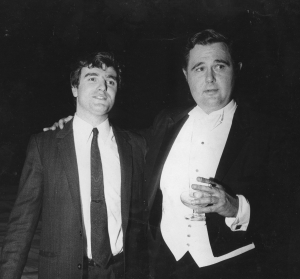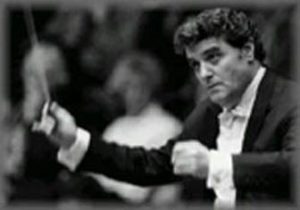Jean-Bernard Pommier recalls his first meeting with Istomin
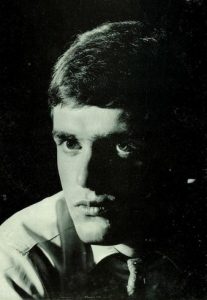 “We met in Sofia in 1963. I was giving a concert conducted by Jerzy Semkow. It was the first time I played Ravel’s Concerto in G. Eugene came into my dressing room at intermission and introduced himself, in French. I recognized him immediately, as I had seen him in Prades when I was very young -my father used to take me to the festival concerts. I also played for the pianists who participated – for Horszowski, for Haskil, for Kapell – but, strangely enough, I had not played for him. He complimented me on the Ravel Concerto and suggested that we meet again. I went to see him at the Bulgaria Hall where he was practicing, and he very kindly asked me to play for him. We had lunch together, and I attended the party which was given in his honor at the United States Embassy. There was a very special atmosphere -you could just imagine that there were microphones everywhere.”
“We met in Sofia in 1963. I was giving a concert conducted by Jerzy Semkow. It was the first time I played Ravel’s Concerto in G. Eugene came into my dressing room at intermission and introduced himself, in French. I recognized him immediately, as I had seen him in Prades when I was very young -my father used to take me to the festival concerts. I also played for the pianists who participated – for Horszowski, for Haskil, for Kapell – but, strangely enough, I had not played for him. He complimented me on the Ravel Concerto and suggested that we meet again. I went to see him at the Bulgaria Hall where he was practicing, and he very kindly asked me to play for him. We had lunch together, and I attended the party which was given in his honor at the United States Embassy. There was a very special atmosphere -you could just imagine that there were microphones everywhere.”
Eugene Istomin recounts the evolution of what was to become a very free pedagogical relationship
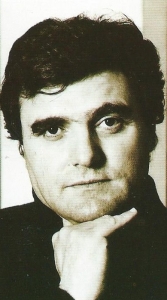 “Jean-Bernard wanted to take some lessons with me. We have established a transatlantic relationship, punctuated by my travels to Europe. It was not a master-student relationship, but an on-going dialogue between colleagues. Jean-Bernard’s career was already well launched! I cannot take the glory for this – it is Jean-Bernard who deserves all the credit. I am honored to have been his teacher -the teacher of an exceptional student!”
“Jean-Bernard wanted to take some lessons with me. We have established a transatlantic relationship, punctuated by my travels to Europe. It was not a master-student relationship, but an on-going dialogue between colleagues. Jean-Bernard’s career was already well launched! I cannot take the glory for this – it is Jean-Bernard who deserves all the credit. I am honored to have been his teacher -the teacher of an exceptional student!”
In the summer of 1966, Jean-Bernard Pommier was invited to play with the Dallas Symphony as part of a French music festival. He then spent a month in Meadow Brook, the Detroit Symphony Orchestra’s summer residence. Istomin, Stern and Rose were in residence, and gave numerous concerts as soloists and as a trio. They also had to give master classes and had invited their best students: Pinchas Zukerman, Lynn Harrell and Jean-Bernard Pommier! The young musicians lived together with their elders as though they were one family. There was a funny report in The Detroit News about the master classes given by Istomin on the Beethoven Emperor Concerto and the Brahms Violin Sonata No. 1. Pommier acted as page-turner during the rehearsals and concerts of the Trio. One day, Isaac Stern forgot to bring his scores, as he often did. Pommier was sent to fetch them at the hotel, some twenty minutes away. The ten thousand members of the audience waited patiently and greeted him with a huge ovation when he drove up to the edge of the stage in his car!
Memories of Jean-Bernard Pommier
“We didn’t really have big discussions about music. His feeling was that teaching was not very useful, especially at this point in my career. He had the same philosophy as Casals, or Serkin: either you have talent, or you don’t. When a student has no talent, a teacher can be helpful in acquiring knowledge and making progress, but in any case one cannot expect miracles. If a student is talented, it is entirely up to him to realize his full potential. In order to do this, he simply needs to work and to remain open to all possible influences, taking here and there what might be useful, and rejecting the rest. That’s why he put me in touch with the great American pianists and the entire American musical world. He also wanted us to listen to each other as often as possible.”
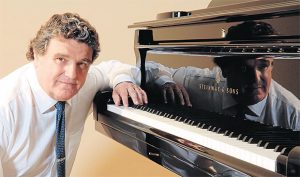 Forty years later, Jean-Bernard Pommier cited all the sources of inspiration he had found in Istomin: the freedom and originality of his phrasing, combined with an extremely beautiful and clear sonority built on the quality of the attack, which made it possible, even while playing detached, to obtain a perfect legato. When they met, Pommier had never heard the recordings of the Tchaikovsky and Rachmaninoff concertos which Istomin had made a few years earlier. Upon discovering them, he was left speechless. He felt that in the Rachmaninoff, Istomin had attained the ultimate limits of virtuosity.
Forty years later, Jean-Bernard Pommier cited all the sources of inspiration he had found in Istomin: the freedom and originality of his phrasing, combined with an extremely beautiful and clear sonority built on the quality of the attack, which made it possible, even while playing detached, to obtain a perfect legato. When they met, Pommier had never heard the recordings of the Tchaikovsky and Rachmaninoff concertos which Istomin had made a few years earlier. Upon discovering them, he was left speechless. He felt that in the Rachmaninoff, Istomin had attained the ultimate limits of virtuosity.
Istomin thought that Jean-Bernard Pommier resembled Kapell in many ways: equally demanding, nervous, impulsive, wanting to find an explanation for everything, and anxious to meet every new challenge head-on. Just as Kapell had done in the past, Pommier was able to push Istomin to face new challenges and to question his work methods. He also encouraged him to take better care of his hands, to write down his fingerings, and to expand his recital programs.
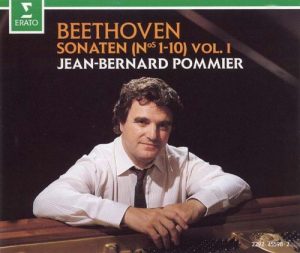 In such an intense relationship, there was inevitably a sense of rivalry, and for Pommier, an Oedipal desire to “kill the father”. Pommier wanted to outdo Istomin on his own territory. He also recorded the Tchaikovsky and Rachmaninoff concertos. Whereas Istomin had contented himself with a few Mozart and Beethoven sonatas, Pommier took up the two complete cycles, performing and recording both. The master had adopted Serkin’s orthodoxy, demanding that what is written for each hand be strictly respected (even in the beginning of the Hammerklavier Sonata!). The disciple wished to demonstrate that by redistributing certain notes between the two hands, he could play Rachmaninoff’s Second Sonata perfectly, which seemed at first glance impossible for pianists with hands as small as his. Istomin was amazed!
In such an intense relationship, there was inevitably a sense of rivalry, and for Pommier, an Oedipal desire to “kill the father”. Pommier wanted to outdo Istomin on his own territory. He also recorded the Tchaikovsky and Rachmaninoff concertos. Whereas Istomin had contented himself with a few Mozart and Beethoven sonatas, Pommier took up the two complete cycles, performing and recording both. The master had adopted Serkin’s orthodoxy, demanding that what is written for each hand be strictly respected (even in the beginning of the Hammerklavier Sonata!). The disciple wished to demonstrate that by redistributing certain notes between the two hands, he could play Rachmaninoff’s Second Sonata perfectly, which seemed at first glance impossible for pianists with hands as small as his. Istomin was amazed!
Istomin never ceased to praise Pommier’s ability to master and memorize any score rapidly, the exceptional diversity of his repertoire, and his outstanding talent as a conductor (he gave him the cufflinks which Ormandy had bequeathed to him). One of his greatest pleasures was performing along with Pommier at the podium!
Their friendship of over forty years was a permanent, brotherly exchange which was not limited to music. When Istomin planned to give concerts in China, Pommier facilitated his contacts with Malraux, to whom he was close, and Malraux intervened with Chou En Lai and Mao Zedong. Pommier embarked on the adventure of the Kapell Competition in 1986 and 1987. He was also closely associated with the last major project of Istomin, which was a tribute to Paul Paray. In June 2000, Pommier came and conducted the Budapest Symphony Orchestra, recording not only Paray’s Fantasy for Piano and Orchestra, with Istomin as soloist, but also his Second Symphony “Le Tréport” and his Symphonie d’archets. In addition, Istomin recorded the Beethoven’s Third Concerto and Mozart K. 271 under Pommier.
Pommier’s conclusion
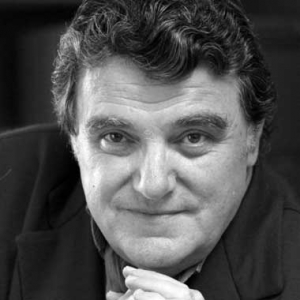 “The most important thing is what Istomin embodied and continues to represent: an artistic consciousness of great rarity. This profound honesty and sincerity gives enormous value to the recordings he left behind. He emerged ennobled from his inner conflicts. There was a benevolence in him, a deep attention to others, in music and in life. Eugene was a human being of unique sensitivity and generosity. He did everything he could to launch my career in the United States and I know that he defended many other pianists, even at his own expense. He was also capable of great anger. The incompetence and lack of commitment, so frequent in the world of music, exasperated him. He felt the inexorable decline of the importance of the arts –that of classical music in particular- and more generally of the quest for excellence, which left him feeling desperate and pessimistic about the future of the world. He tried not to paint too dark a picture for me, but I still inherited from him this lucid vision of the music world. It doesn’t make the career easier, as it pushes one to refuse any compromises. Like him, I have had to pay a high price, but I have absolutely no regrets.”
“The most important thing is what Istomin embodied and continues to represent: an artistic consciousness of great rarity. This profound honesty and sincerity gives enormous value to the recordings he left behind. He emerged ennobled from his inner conflicts. There was a benevolence in him, a deep attention to others, in music and in life. Eugene was a human being of unique sensitivity and generosity. He did everything he could to launch my career in the United States and I know that he defended many other pianists, even at his own expense. He was also capable of great anger. The incompetence and lack of commitment, so frequent in the world of music, exasperated him. He felt the inexorable decline of the importance of the arts –that of classical music in particular- and more generally of the quest for excellence, which left him feeling desperate and pessimistic about the future of the world. He tried not to paint too dark a picture for me, but I still inherited from him this lucid vision of the music world. It doesn’t make the career easier, as it pushes one to refuse any compromises. Like him, I have had to pay a high price, but I have absolutely no regrets.”
Recordings
Mozart, Concerto No. 9 K. 271. Beethoven, Concerto No. 3. Paray, Fantaisie pour piano et orchestre. Budapest Symphony Orchestra. Jean-Bernard Pommier. Budapest, June 2000. Unissued recordings (except the Fantaisie by Paray on a private CD).
Concerts
1972, February 4. Paris, Théâtre des Champs-Elysées. Mozart, Concerto for 2 Pianos K. 365. Orchestre de Chambre de l’ORTF. Alexander Schneider. Live broadcast (no tape). Another performance was filmed in studio by the French Television.
1972, June 13. San Juan, Puerto Rico. Mozart, Concerto for 2 Pianos K. 365. Casals Festival Orchestra. Alexander Schneider. Recorded concert.
1974, May 31. Fonfroide. Bach, Concerto for 2 Pianos BWV 1061. Beethoven, Concerto No. 4. Orchestre de Nice-Côte d’Azur. Jean-Bernard Pommier, piano (Bach) and conductor. Recorded concert.
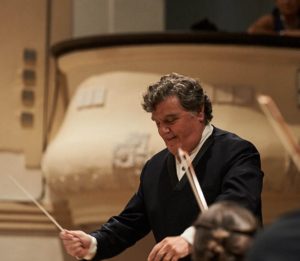 1980, May 5. Paris, Théâtre des Champs-Elysées. Brahms, Concerto No. 2. Orchestre National de France. Jean-Bernard Pommier. Recorded concert.
1980, May 5. Paris, Théâtre des Champs-Elysées. Brahms, Concerto No. 2. Orchestre National de France. Jean-Bernard Pommier. Recorded concert.
1990, January 16. Melbourne. Beethoven, Concerto No. 5. State Victoria Orchestra. Jean-Bernard Pommier.
1997, January 13 & 15. Turin. Mozart, Concerto No. 21 K. 467. Orchestra Filarmonica di Torino. Jean-Bernard Pommier.
Documents
Brahms, Concerto No. 2 Op. 83, second movement (Allegro appassionato). Eugene Istomin, Orchestre National de France, Jean-Bernard Pommier. Concert of March 5, 1980
.
Paul Paray, Symphony Le Tréport, first movement. Budapest Symphony Orchestra. Jean-Bernard Pommier. Recorded in June 2000.
.
Chopin. Ballade No. 3 in A flat major, Op. 47. Jean-Bernard Pommier. Filmed in January 1979.

